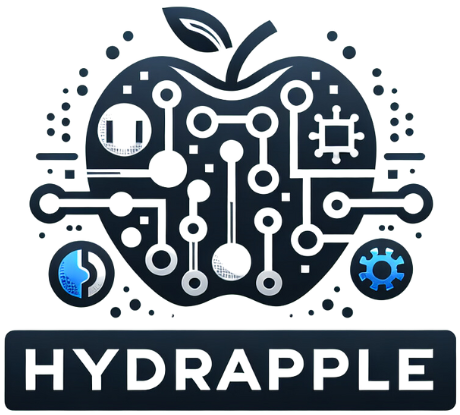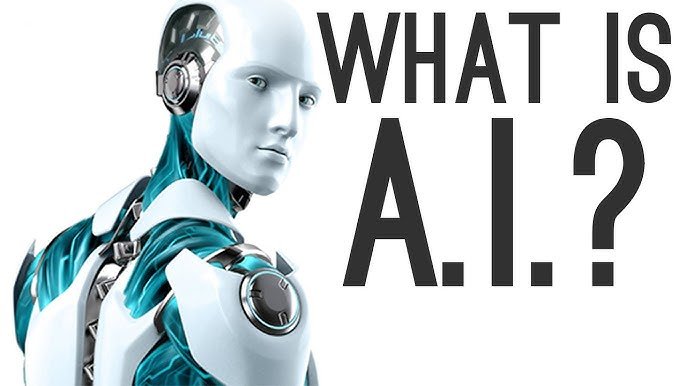Artificial intelligence, or AI, has become a buzzword dominating conversations across industries, households, and even casual gatherings. But what does AI really mean? At its core, AI refers to computer systems or machines capable of performing tasks that traditionally required human intelligence. These tasks include reasoning, problem-solving, learning, and decision-making.
Far from science fiction fantasies, AI already plays a pivotal role in your daily life—think of voice assistants like Alexa, recommendation algorithms on Netflix, or even your email’s spam filters. But as this technology continues to advance, it brings with it excitement, questions, and doubts.
This blog dives into everything you need to know about AI. From how to access tools like Google AI for free to exploring fears about AI “taking over the world,” we’ll break it all down. Whether you’re a curious individual or a professional looking to tap into AI, you’ll find insights to fuel your understanding.
Can You Use Google AI for Free?
Yes, Google AI can be used free of charge! Tools like Google AI Studio are available to users across all regions without any usage fees. While specified rate limits apply, these are generous enough for most use cases. For larger-scale needs, you can apply for an upgraded paid tier that offers increased rate limits and other advanced features.
Google’s accessible AI suite allows beginners and professionals alike to experiment with machine learning models, analyze data, and create AI-powered apps. Whether you’re testing the waters or building frameworks for your business operations, this is an excellent starting point.
Is AI Already Self-Aware?
One of the most popular myths about artificial intelligence is that it’s on the brink of developing self-awareness. While AI might seem “smart,” we’re far from achieving artificial consciousness. Current AI systems excel at mimicking human behavior by pulling on colossal datasets and patterns. However, they lack actual emotions, experiences, and awareness.
At present, AI operates within parameters set by humans. True consciousness requires not only computational capabilities but also an understanding of abstract concepts like morality, empathy, and self-perception—concepts that remain firmly outside AI’s reach, at least for now.
Is There a Free AI I Can Use?
Absolutely! If you’re eager to tinker with AI tools but don’t want to invest upfront, ElevenLabs is a fantastic option. This AI voice generator boasts over 300 voices across different styles, including conversational tones and specialized voices for ads.
ElevenLabs is unique in that it combines flexibility, superior quality, and accessibility—all without a price tag. If you’re exploring creative fields, this tool can help you create voiceovers for presentations, YouTube videos, podcasts, and more.
How to Get Started With AI
Want to jump into the fascinating world of AI? Start by building a strong foundation.
- Learn Programming
Python is the go-to language for AI development. It’s beginner-friendly and widely used across AI projects thanks to its robust libraries like TensorFlow, PyTorch, and Scikit-learn.
- Master Math
AI operates on mathematical principles. Brush up on concepts such as linear algebra, calculus, and statistics. These are critical for understanding machine learning models.
- Enroll in Courses
Platforms like Coursera, Udemy, and edX offer excellent AI and machine learning courses for all levels. Tutorials on YouTube can also be a valuable resource.
- Experiment With Tools
Leverage platforms like Google Colab or OpenAI Playground to test algorithms and create minimal AI projects.
By combining technical skills with a thirst for knowledge, you can start building meaningful AI applications, whatever your domain might be.
Could AI Take Over the World?
It’s easy to imagine apocalyptic scenarios where robots overthrow humanity, thanks to decades of science fiction narratives. However, the reality is far less dramatic—AI will not take over the world.
AI operates within boundaries dictated by the algorithms we program and the datasets we feed it. While advanced AI can surpass human capabilities in specific tasks, it lacks the autonomy, creativity, and intent to pose a threat. Critics of AI’s risks often point to ethical concerns and misuse rather than innate malevolence in the technology itself.
Can AI Have Its Own Thoughts?
Short answer? No.
AI systems like OpenAI’s GPT models or Google’s Bard don’t “think” in the way humans do. Human thoughts are deeply tied to consciousness, emotions, and individual experiences. AI, on the other hand, generates its responses by analyzing patterns and solving problems within its programming. Although it can produce seemingly original outputs, it lacks self-awareness or genuine cognition.
Is It Safe to Talk to AI?
Yes and no. While speaking with AI chatbots can be informative and entertaining, sharing personal or sensitive information with them can be risky.
AI chatbots often store data on servers, and while companies have systems in place to protect user data, breaches and hacking attempts are always a possibility. Be mindful of what you share with AI services, especially when it comes to private or financial information.
Why Do We Fear AI?
AI evokes fear because it’s unfamiliar and outside of our control. Humans crave certainty and agency over their environment. When we encounter something as powerful and versatile as artificial intelligence, concerns about losing that control arise.
This psychological resistance is natural. However, by educating ourselves on how AI works and what it can (and can’t) do, we can transform fear into fascination.
Which AI Thinks Like Humans?
One model often highlighted for its human-like reasoning is OpenAI’s o1 model. It mimics cognitive processes through reflective reasoning, making decisions in a manner that feels intuitive. However, even this advanced AI doesn’t actually “think” like a human; it simply processes data differently to reach more nuanced outcomes.
How Can I Use AI on My Phone?
AI features are more accessible than you might think! Smartphones equipped with AI offer a range of tools that make everyday tasks faster and easier. For Android users, simply head to Settings > Galaxy AI, where you’ll find options like voice assistants, smart photo organization, and productivity tools.
iPhone users have Siri, which integrates seamlessly with other Apple apps for reminders, schedules, and even dictation. Many third-party apps also come with AI-powered functionality, from fitness tracking to language learning.
Final Thoughts—The Future of AI
Artificial Intelligence is rapidly transforming how we live and work. While questions and concerns will always surround such a groundbreaking innovation, knowledge is your best tool for navigating its complexities.
Whether you’re using free tools like Google AI Studio or exploring voice generators like ElevenLabs, AI opens up a world of opportunities for creativity, productivity, and efficiency. It’s not about fearing the future—it’s about learning to shape it.
Curious to explore more? Start experimenting with open-source tools or free demos today to see how AI can elevate your personal and professional life!

